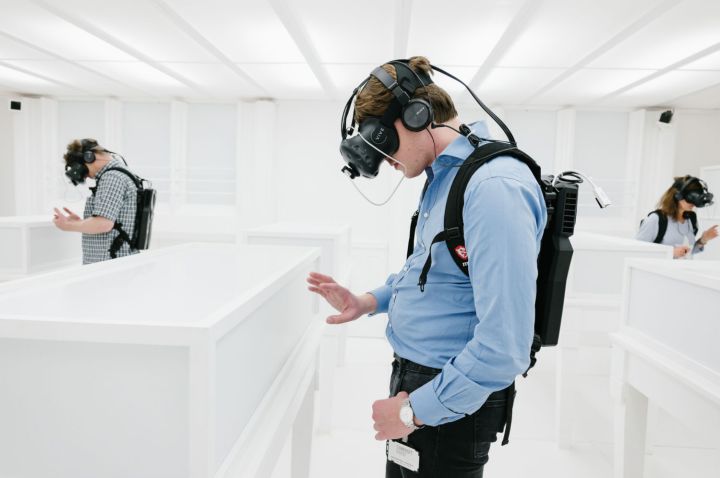
“Some of the earlier museum VR experiences, or full-stop VR museums, were basically taking scanning artifacts and photographs and putting them in a virtual museum you could walk around in. We looked at that and felt that it wasn’t very compelling,” head of the studio Joel Breton told us. “We’re going to create virtual reality content and experiences that will show people how immersive technology can make their learning experience even richer.”
One example is Berlin Wall: The Virtual Reality Experience, an exhibit that’s currently available at Newseum in Washington DC. The installation replicates the experience of being there from multiple perspectives, including people on the west side of the wall, and soldiers standing guard atop it.
“It’s chilling,” he said. “It’s absolutely chilling. You’re fully immersed in 360 degrees, you can look around, and you feel like you’re there. That’s the power of virtual reality for us, especially on room-scale and Vive that we have to work from. The power is that we can take the user anywhere in the entire universe throughout all of time for historical experiences like this.”
Vive Studios was created in December of 2016 to kickstart first-party content for the HTC Vive VR headset. In contrast with the HTC Vive’s partnership with game company Valve, Vive Studios was started with the specific goal of expanding VR experiences beyond the realm of gaming.
Breton explained that as both planned exhibits and future ones are rolled over the next few years, some will also be available in Viveport, HTC’s VR app store. Outside of Vive Studios, HTC sponsors Vive X, a global accelerator program with the goal of cultivating “the VR startup ecosystem.” The company seems determined to not only expand access to VR experiences, but also make sure HTC plays an important role in shaping the future of the medium.
“It’s definitely a stepping stone on the way to where we get to exponential adoption of VR as a mass medium. We think a lot of people that’ll experience this content will be first time VR users. What we’ve learned from our partners is that the age range is from eight to eighty that will view the collections, depending on the museum. There are still seven and half billion people that haven’t tried premium VR.”
Breton stated that the exhibits would be supporting the HTC Vive headset, but also confirmed that museums and art galleries have expressed interest in the future standalone VR headset from HTC, which has yet to be unveiled. We’ll have to wait and see whether or not the masses are really ready for this technology in museums, but it’s a big move to ensure that HTC and Vive Studios stay relevant in the future of the VR space.
Editors' Recommendations
- The best VR apps for 2023
- What is VR?
- HTC Vive XR Elite vs. Meta Quest Pro: mixed-reality showdown
- Here’s everything I learned using the HTC Vive XR Elite at CES 2023
- How the Vive XR Elite can do high-end VR in a half-pound headset

